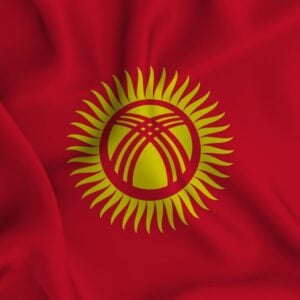The International Finance Corporation (IFC), a member of the World Bank Group, held an IFC Partnerships Day in Baghdad to celebrate 20 years of impact in Iraq and to announce $1 billion in new investments across energy, infrastructure, agribusiness, and finance. The event, held under the patronage of Prime Minister Mohammed Shia’ al-Sudani, underscored IFC’s long-term commitment to strengthening Iraq’s private sector and fostering sustainable economic growth.
Since 2005, IFC has invested and mobilized more than $2.5 billion in Iraq, creating over 28,000 jobs, including 5,000 for women. Its investments have strengthened infrastructure, expanded access to finance, supported manufacturing, and enhanced food security. IFC has also played a pivotal role in economic diversification through transport and energy projects and has advanced sustainable finance in partnership with Iraq’s Central Bank, the Iraq Stock Exchange, and local financial institutions. Notably, IFC is leading Iraq’s first airport public-private partnership, supporting modernization efforts.
At the event, several new partnerships were launched to tap into Iraq’s private sector resilience. In energy, IFC was mandated by Basrah Gas Company to arrange a second loan of up to $500 million to expand one of the world’s largest gas flaring reduction projects, capturing gas for energy use and cutting emissions. In infrastructure, IFC partnered with Aloreen Company for Investment to invest $120 million in Umm Qasr Port, enhancing container handling capacity in collaboration with Terminal Investment Limited Holding.
IFC also plans to boost Iraq’s manufacturing sector through a $200 million investment with Nomu Holding to modernize the construction materials industry, support decarbonization, and develop local workforce skills. In housing and retail, IFC partnered with Hiwa Rauf for Investment and Development to establish Iraq’s first certified sustainable mixed-use real estate project in Sulaymaniyah, aiming to create jobs and attract private investment.
In agribusiness, IFC and Tiryaki Agro will conduct a feasibility study to strengthen local wheat production, modernize storage, and integrate renewable energy, reducing reliance on imports. In healthcare, IFC partnered with Ruban Al Safina to develop a feasibility study for a 200+ bed teaching hospital within the American University of Iraq in Baghdad, aiming to enhance clinical services and develop human capital.
To boost trade, IFC extended a $10 million trade finance line with the Bank of Baghdad through its Global Trade Finance Program, supporting cross-border trade and access to essential goods. Finally, IFC partnered with the First Finance Company to expand access to finance for micro, small, and medium enterprises, identifying strategic areas of growth to unlock new economic opportunities for Iraq’s smaller businesses.







